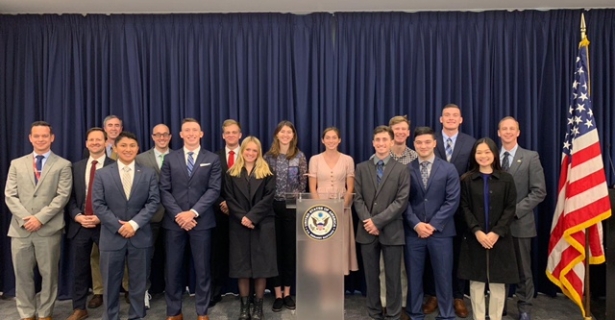June 7, 2022, was a busy day for us as we met with a post doctorate researcher and geographer, Felipe Irarrázaval at the University of Chile and visited the United States Embassy in Chile. We arrived at the beautiful campus of Lo Contador and spoke with Felipe for about two hours. Felipe was extremely helpful in answering our questions and informing us about the history and the current status of geographical politics in Chile.
We learned about the history of the indigenous group of the Mapuche, and the turbulent history between the insurgent Mapuche groups in the southern macrozone and the Chilean government and the police force. We also touched upon how the COVID-19 pandemic revealed the weakness of Chile’s border security, which was once thought to be impenetrable due to the country being biologically protected by the ocean on the west, the desert in the north, mountains on the east, and the Antarctic region in the south. Additionally, we reviewed Chile’s relations with Argentina regarding disputed borders, and the presence, and perception, of Chinese companies in Chile.
Immediately after we finished our talk with Felipe, we quickly headed over to the United States Embassy in Chile.
After going through security, we met with the following: Chris Maudlin, US Foreign Affairs Officer; Commander Dan Upp, Chief of Naval Section in the Office of Security Cooperation; Lieutenant Colonel Lorena Juarez, Security Officer for Air Force and Space Force; Ian Parker, Foreign Service Officer; Levi Faber, DEA agent stationed in Chile. We were given brief introductions on the role of the US Embassy in Chile, as well as what kind of work the Office of Security Cooperation (OSC) does regarding international and domestic Chilean affairs and challenges.
The OSC often partners and cooperates with the Chilean military by conducting joint training, and selling equipment, and information. We were able to get a unique perspective of military and civilian officers who serve in the interest of the United States but also work in Chile and get a more intimate understanding of the government and people’s sentiment towards certain topics, like the police and military.

